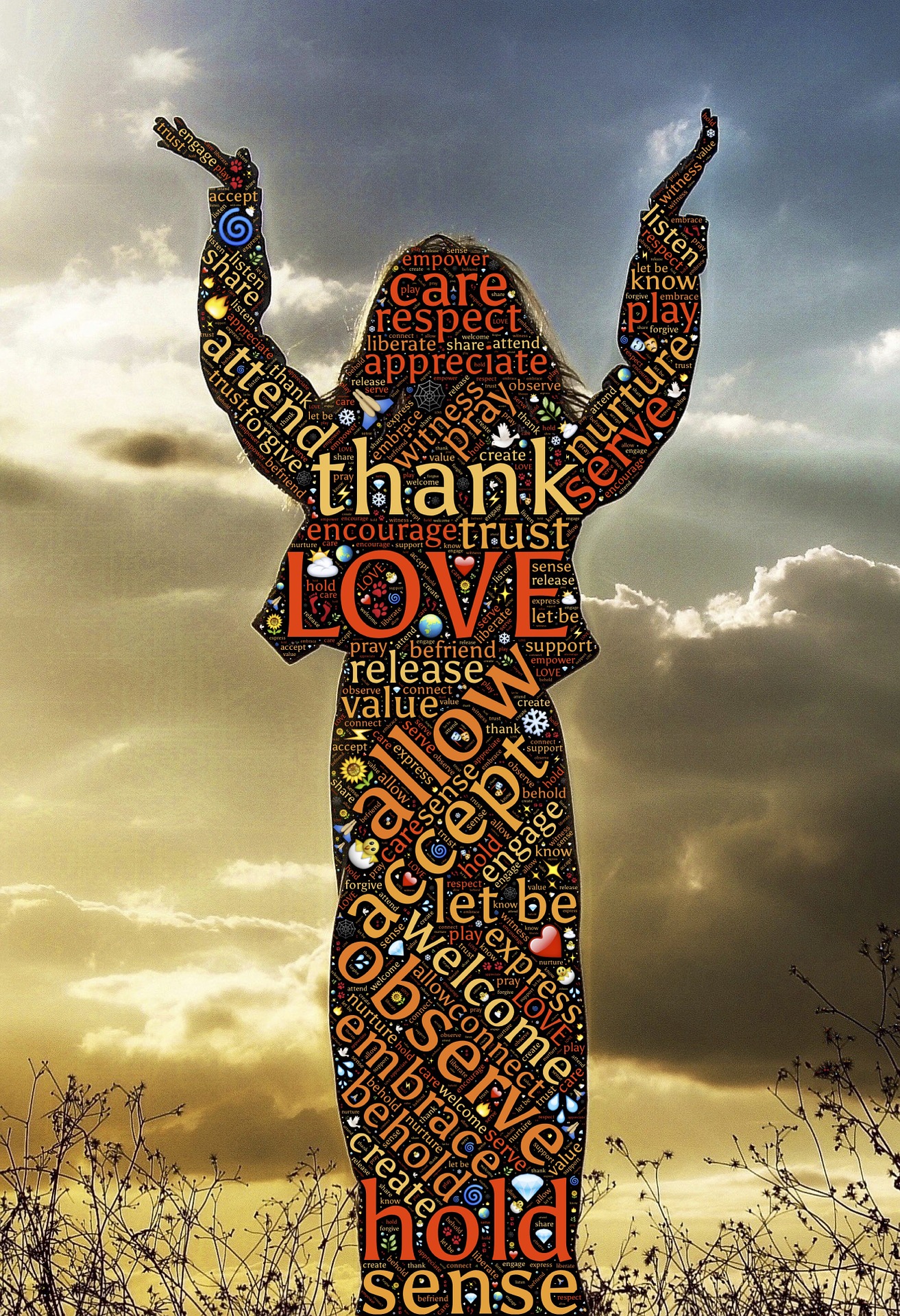Useful Ways to Power Up Your Communication

This article is based on the teachings of a book called Nonviolent Communication, a Language of Life (NVC) by Marshall Rosenberg. I like to call it "liberated responsible powerful communication".
Here I'll share examples of NVC-style empathy that are better for real world use and NVC-style empathy that is best for practice.
About positive do-able requests
With the NVC formula of Observation --> Feeling --> Need --> Request (OFNR), we usually put off use of the Request (Positive do-able request) part because the primary focus/purpose of NVC is to create connection. In our culture: problem solving, advice, and reassurance are usually initiated prematurely and without asking permission. Problem solving, advice, and reassurance - when offered before deep enough understanding is established - can reduce connection. So, while positive do-able request is an important part of communication and included in the NVC model, I'm choosing to focus on the higher priorities here, which are understanding the feelings and needs of others.
Side note about observation
Regarding the "observation" part of the NVC formula of (1) Observation --> (2) Feeling --> (3) Need --> (4) Positive do-able request (OFNR). Why is the Observation part of OFNR important?

The Observation part is important for a few reasons, including:
Empathy is all about putting ourselves in the other person's shoes. Observation without evaluation helps us warm up to that. It's purpose is to be as objective as possible. It requires us to imagine as a camera and microphone (with no feelings or judgment) would perceive the situation. "There you were, being told by the person you care most about that they are deeply in love with you." This observation helps us get to the next step, which is to guess at the feeling(s) the other person is having. This works the same for self-empathy.
Another way observation helps is to allow the other person a chance to correct us if our perception of what happened does not match up with theirs.
Finally, observation shows the other person we were truly listening to them.
For practice
When you are practicing, I highly recommend mostly using 3-Stage Empathy (explained below). Why? Imagine any skill you want to learn or master. I find it more useful to practice the hardest form of that skill in a safe environment so that when you are in difficult situations, the use of the skill is easier. That said, I still do want to demonstrate some "shortcut forms" because they may have some use in different contexts of a practice environment.

ANALOGY: In a martial arts class students practice kicking high and slow, which is the most difficult way to kick. Try holding your leg up above your waist for even a coupld seconds! So, if needing to defend ones self outside of class, the easier a low/fast kick will be.
GOING A BIT FURTHER WITH THAT: We spend much of our time practicing "forms". These are like dances we can do alone or in synchronicity with others. They have a set number of moves to be done with precision in a specific order. As we do these moves, we are training our minds and nervous systems. Especially in the beginning, we are exercising self-control and may not appear so fluid. Definitely not spontaneous. But when we "spar" or play free form, benefits of having practiced the forms influences our movements to be more fluid, efficient, powerful, and accurate.
This is what NVC is for me; a tool to train my mind and heart so when I'm interacting with people, I'm automatically empathetic in a fluid, spontaneous, and authentic way.

In my humble opinion, we can never get enough of this kind of practice!
Now some types of empathy we can practice
1-Stage Empathy
"Is that because you [value/wanted more] [pick need/value]?"
EXAMPLE: "Is that because you value consideration?"
2-Stage Empathy
"[Are you/Is it/Do you feel] [pick a feeling] because you [wanted/want more/
value] [pick need/value]?"
EXAMPLE: "Are you frustrated because you wanted justice?"
or
"Do you value [pick a need-value] so you [feel/felt] [pick a feeling]?"
EXAMPLE: "Do you value justice so you feel frustrated about how that went down?"
3-Stage Empathy - Recommended for practice
"When you [observation without evaluation] did you [pick a feeling]
because you want more [pick need/value]?"
EXAMPLE: "When you were standing there on fire, did you feel a huge amount of surprise and pain because you want more comfort?"
Real world use
Outside of the classroom, I've found that trying to put the entire NVC formula in one sentence or jumping straight to needs/values recognition may be less often practical compared to what I'll show below. The receivers of this may become impatient or uncomfortable, want more privacy, and/or interpret the communication as inauthentic. Here we break it into pieces so it flows more like a conversation than a speech and comes across less invasive.
1st Piece; guess only the feeling
"Are you feeling [pick feeling]?"
EXAMPLE: "Are you feeling disappointed?"
"Is it [pick feeling] for you?"
EXAMPLE: "Is it scary for you?"
2nd Piece; listen to their response
If they correct you that no they are not feeling scared but actually excited, you can now move to the 3rd piece with more accurate information.
3rd Piece; now guess the need/value
Here we now know their feeling(s), so we can more easily guess the need, like in the 1-Stage Empathy in the prior section of this page:
"Is that because you [value/wanted more] [pick need/value]?"
EXAMPLE: "Is that because you wanted more presence?"
"Was it [the feeling here] because you value [pick a need/value]?"
EXAMPLE: "Was it scary because you value her safety?"
More; some tips
An excellent way to phrase requests
Would you be willing to... ?
Hey are you up for...?
What do you think of...?
They took our request as a demand
"Could you tell me how I could have let you know what I was requesting so it wouldn't sound like I was telling you what you had to do?"
We asked for something and they say yes but we don't trust their answer
"I'm hearing you say yes and I want to trust your answer. I'd really like you to take a moment and tell me whether it would meet your needs to do as I requested."

Thanks for reading! There is a lot more I could have added here but I want to keep it as short and accessible as possible. More to come! I trust if you got value from this post, you will upvote and maybe even subscribe (follow me).
Great break down, very helpful, I miss NVC practice with you Scott!
Thanks, Patrick! I miss that and I miss YOU! I appreciate much about interacting with you. Met my needs for creativity, mental stimulation, acceptance, and depth. I'm quite sure we'll see each other again! I wanna write more but will use Telegram for the rest.
This is a great write up. I really enjoy studying empathy you've done a great job at delineating these important concepts. I like your break down between classroom and in practice methods.
That's an awesome goal and I also hope to live in that place!
Cheers,
Sam
Congratulations! This post has been upvoted from the communal account, @minnowsupport, by ScotterMonkey from the Minnow Support Project. It's a witness project run by aggroed, ausbitbank, teamsteem, theprophet0, someguy123, neoxian, followbtcnews, and netuoso. The goal is to help Steemit grow by supporting Minnows. Please find us at the Peace, Abundance, and Liberty Network (PALnet) Discord Channel. It's a completely public and open space to all members of the Steemit community who voluntarily choose to be there.
If you would like to delegate to the Minnow Support Project you can do so by clicking on the following links: 50SP, 100SP, 250SP, 500SP, 1000SP, 5000SP.
Be sure to leave at least 50SP undelegated on your account.